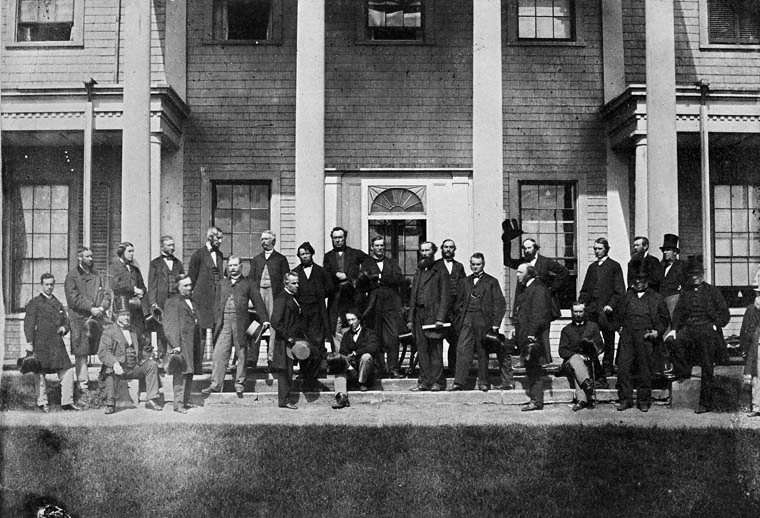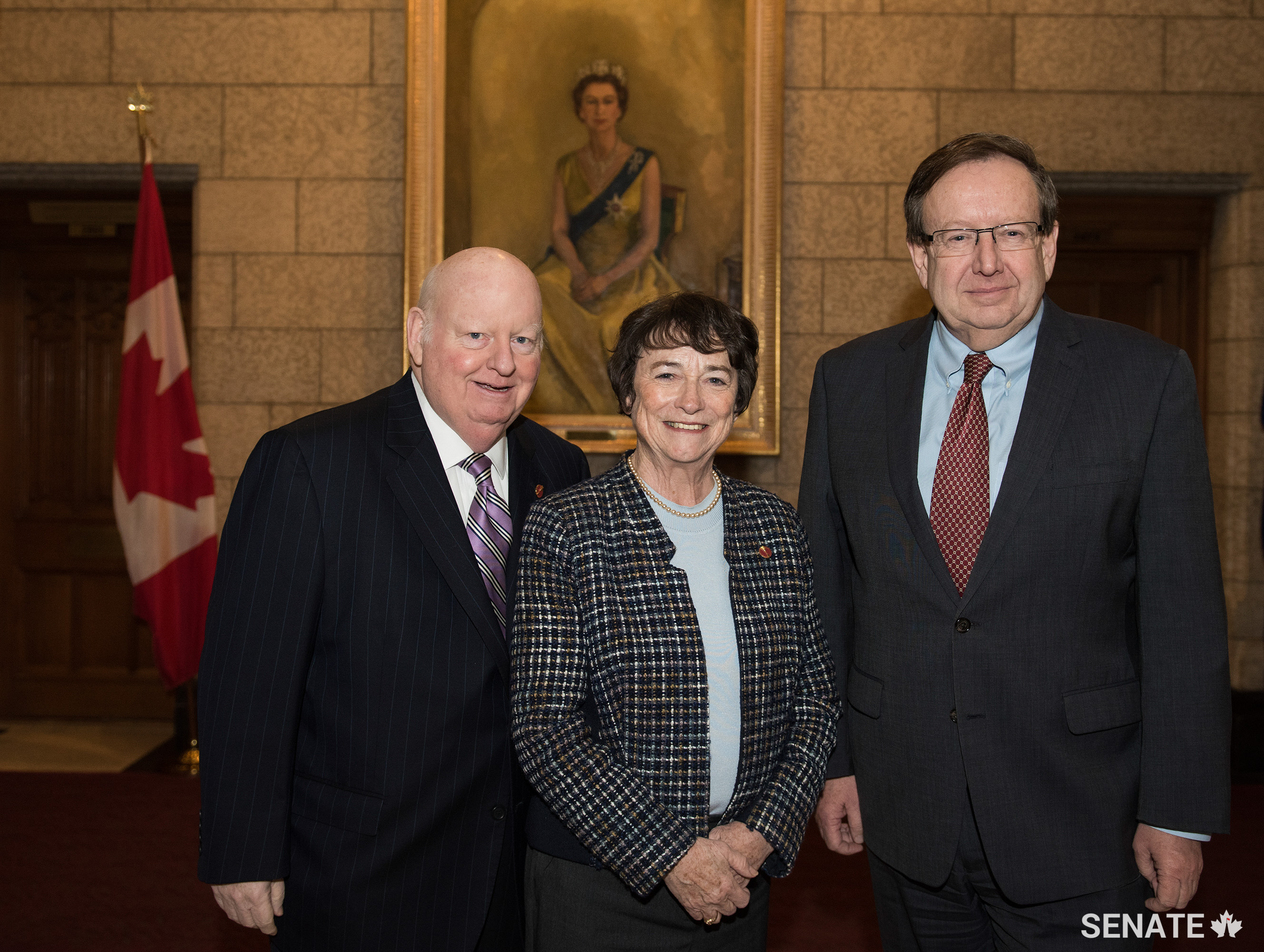Charlottetown recognized as birthplace of Confederation: Senator Griffin’s bill is adopted

Tags

Senator Diane Griffin’s Bill S-236 was granted Royal Assent on Tuesday, December 12, 2017.
This bill formally recognizes Charlottetown as the birthplace of Confederation.
In 1864, delegates from the three Maritime colonies agreed to meet in Charlottetown to discuss Maritime union, while a delegation of Canadians — now Ontario and Quebec — came as observers. The topic of Maritime union was quickly laid aside in favour of discussing the larger idea of bringing together all of British North America.
The result was a general consensus on the principle of a federal union and some of its contours.
The central government, responsible for common interests, would predominate, but the member provinces would retain significant powers. The federal branch of government would feature a bicameral legislature, with a lower house elected according to the population and an appointed upper house structured around the concept of sectional equality.
This plan would be converted into a more detailed blueprint at the subsequent conference in Quebec City a month later. Finally, in 1867, the British Parliament would pass the British North America Act, establishing the federal Dominion of Canada.
This year, as we celebrate Canada 150, is the perfect time to cement the importance of the Charlottetown Conference in our history.
Having received the governor-general’s stamp of approval, otherwise known as Royal Assent, the bill has now officially become law.
Read Senator Griffin’s complete remarks on this bill from February 28, 2017. Click here to learn more about Senator Griffin’s bill.
Note to readers: The Honourable Diane Griffin retired from the Senate of Canada in March 2022. Learn more about her work in Parliament.
Ed MacDonald, Professor of History, University of Prince Edward Island


Senator Diane Griffin’s Bill S-236 was granted Royal Assent on Tuesday, December 12, 2017.
This bill formally recognizes Charlottetown as the birthplace of Confederation.
In 1864, delegates from the three Maritime colonies agreed to meet in Charlottetown to discuss Maritime union, while a delegation of Canadians — now Ontario and Quebec — came as observers. The topic of Maritime union was quickly laid aside in favour of discussing the larger idea of bringing together all of British North America.
The result was a general consensus on the principle of a federal union and some of its contours.
The central government, responsible for common interests, would predominate, but the member provinces would retain significant powers. The federal branch of government would feature a bicameral legislature, with a lower house elected according to the population and an appointed upper house structured around the concept of sectional equality.
This plan would be converted into a more detailed blueprint at the subsequent conference in Quebec City a month later. Finally, in 1867, the British Parliament would pass the British North America Act, establishing the federal Dominion of Canada.
This year, as we celebrate Canada 150, is the perfect time to cement the importance of the Charlottetown Conference in our history.
Having received the governor-general’s stamp of approval, otherwise known as Royal Assent, the bill has now officially become law.
Read Senator Griffin’s complete remarks on this bill from February 28, 2017. Click here to learn more about Senator Griffin’s bill.
Note to readers: The Honourable Diane Griffin retired from the Senate of Canada in March 2022. Learn more about her work in Parliament.
Ed MacDonald, Professor of History, University of Prince Edward Island



